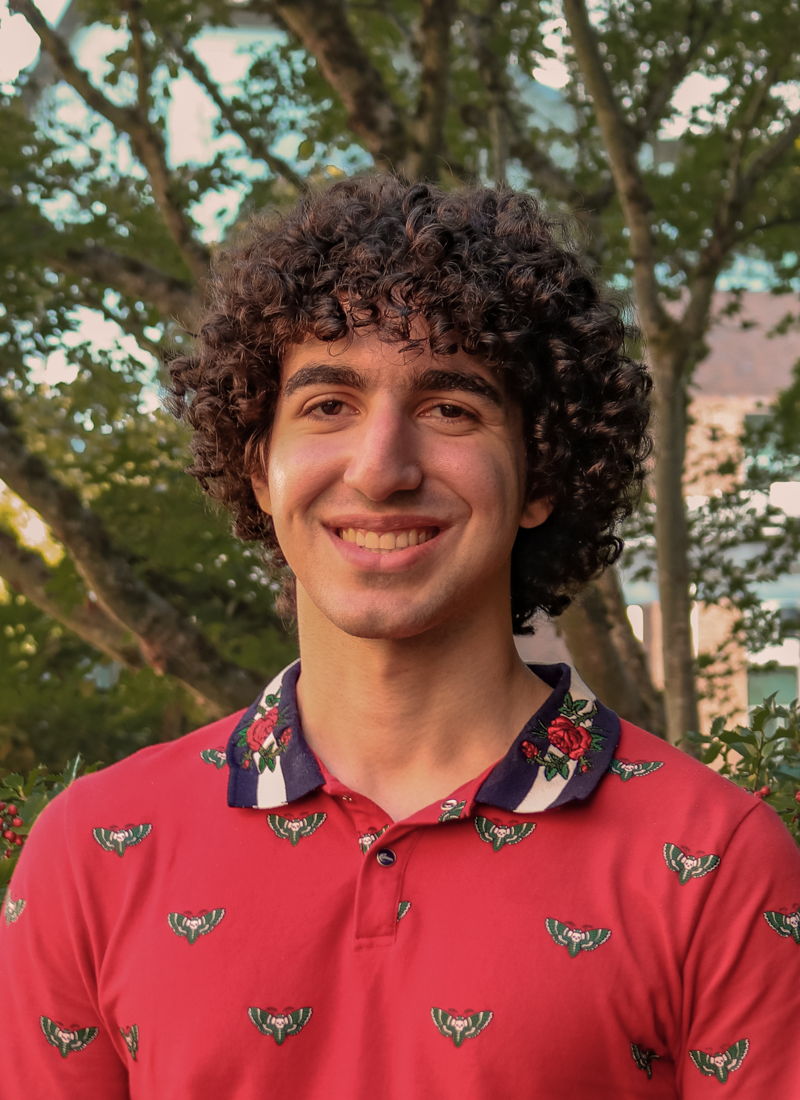This story was originally published in Vol. 34, Issue 7 (April 2024)
In a remarkable journey from aspiring student senator to pivotal lobbyist, Isela Bonilla, external director of legislative affairs in Associated Students of Washington State University Vancouver (ASWSUV), became a critical figure in the passing of House Bill 1889—a legislative milestone aimed at improving conditions for undocumented workers across the state.
Bonilla, a sophomore communications and social sciences major, was initially eyeing a senator position within the student government. However, her trajectory took a significant turn following a recommendation from ASWSUV President Diana Luis-Contreras, who saw her potential for a more impactful role.
“A couple of days after finding out I got Senator, the president recommended me this position…[Luis- Contreras] thought it was a good fit,” said Bonilla.
Bonilla’s role as a student lobbyist involves forming and promoting an agenda created by the student government, which addresses concerns voiced by students. This agenda, in collaboration with the Washington Student Association in Olympia, is then lobbied to legislators throughout the session. Beyond lobbying, Bonilla organizes grassroots efforts to ensure active participation from the student body in legislative processes.
Every WSU campus has a legislative affairs liaison, but only the Vancouver and Pullman campuses currently have representatives doing internships in Olympia. Bonilla meets every one to two weeks with her counterparts to discuss a unified agenda for all WSU campuses, enhancing the collaborative effort across the university system.
The road to pass House Bill 1889 was fraught with challenges, primarily due to misconceptions surrounding the bill’s intentions regarding undocumented individuals. Specifically, the bill makes it possible for people to get professional licenses and certifications in the state regardless of one’s immigration or citizen status. However, Bonilla’s persistence and dedication played a crucial role in changing narratives and securing the bill’s passage.
“It was difficult,” she said, reflecting on the effort required to overcome the initial disapproval. “A lot of stigma around the bill in Olympia in the beginning had to do with false hope, because it had to do with undocumented people. Immigration statuses and all that stuff. It was really hard to get people to change their minds on that narrative. But, I mean, we got it. We really did that.”
The bill’s timeline was tight, crammed into a three- month session within a biennial cycle. With over a thousand bills to process, Bonilla and her team had to work strategically and tirelessly, often extending their efforts into weekends to meet with legislators and organize support on campus.
Bonilla’s motivation for her involvement with House Bill 1889 was sparked by a campus issue where an undocumented student worker couldn’t be compensated due to their status. This led her to delve into legislative research, culminating in the discovery and support of the bill sponsored by Rep. Amy Walen.
House Bill 1889 has the potential to have a significant impact both on the WSU Vancouver campus and across the state. By lowering the barriers to obtaining professional licenses, people who are otherwise completely qualified, yet simply couldn’t get an immigration issue handled, can tread a new path with a legal, lawful way to gain employment and support themselves. Bonilla’s personal connection to the bill, underscored by her immigrant background, highlights the broader implications for families and individuals navigating similar challenges.
“So it’s more for me,” she said, reflecting on the bill’s passage and the effect it had on her. “It’s more like a touchy impact than, like a full impact.”
House Bill 1889’s passage marks a significant step forward in supporting undocumented workers, a testament to the power of student-led advocacy in enacting meaningful legislative change. Bonilla’s journey into student government was spurred by her circle of friends and the professional conduct she observed within ASWSUV. After a full year in her current position, she is open to the possibility of a career in civil service or politics, inspired by her experiences and the impacts lobbying can have.

Shawyan is a junior studying computer science at WSU Vancouver.